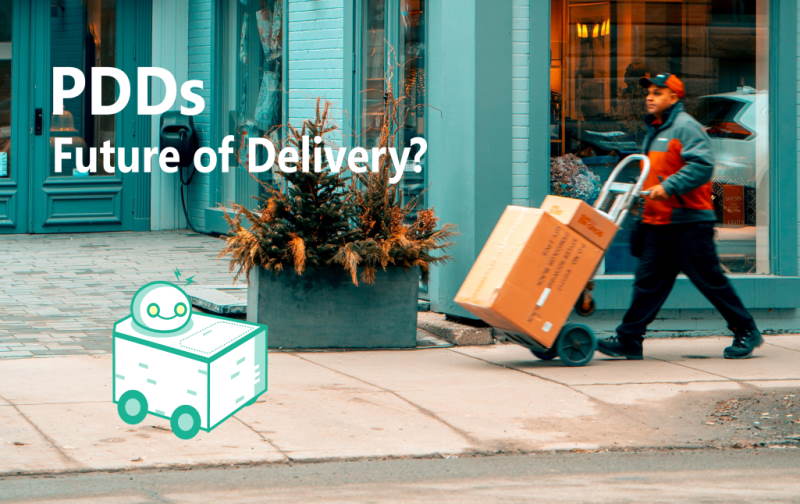Thank you for your support at RList Insights all these years!
We are migrating our robotics-related content to apera.io, a platform (beta) which helps you discover companies & products in robotics, AI, IoT, metaverses & other emerging tech. Visit our new home!
We are migrating our robotics-related content to apera.io, a platform (beta) which helps you discover companies & products in robotics, AI, IoT, metaverses & other emerging tech. Visit our new home!
In October 2020, Pennsylvania became the latest state to legalize the deployment of Personal Delivery Devices (PDDs) along sidewalks, crosswalks and roads.
The legislative milestone for PDDs puts Pennsylvania in the company of more than a dozen states that have approved such PDD legisliation before it, namely, Virginia, Idaho, Wisconsin, Florida, Ohio, Utah, Arizona, Washington, Texas, North Carolina, Missouri, Colorado and Tennessee.
Personal Delivery Devices (PDDs) are autonomous mobile devices (or robots) made for transporting and delivering goods, usually for the last mile to consumers in a supply chain. Virginia pioneered the move to legalize PDDs under Senate bill SB 1207 in 2017, initially permitting only robots under the weight of 50 pounds to ply pedestrian sidewalks at a maximum speed of 10 miles per hour.
Weight Limit. From 2017 to 2020, numerous states followed suit, introducing variations to laden and unladen weight limits as well as speed limits along sidewalks. Most states require an unladen weight limit of between 80 to 120 pounds for PDDs, except for Virginia, North Carolina (SB 739) and Pennsylvania (SB 1199) which have raised weight limits of up to 500 to 550 pounds.
Speed Limit. The speed limit along sidewalks is generally stipulated as 10 to 12 miles per hour, with the exception of Washington state (HB 1325) which imposes a safe 6 miles per hour. States such as Virginia, Utah (HB 227), Texas (SB 969), North Carolina, Colorado (SB 20-092) and Pennsylvania further permit PDDs to navigate along the side of roads at speed limits of 20 to 25 miles per hour.
We present (below) a table of the U.S. states that have legalized PDDs, together with the associated bills, weight limits and speed limits.

Dataset for list of states that have legalized PDDs (weight/speed limits) ( SOURCE)
Virginia (SB 758), Idaho (HB 566), Wisconsin (SB 148), Florida (HB 1027), Utah (HB 277), Arizona (HB 2422), Washington (HB 1325), Texas (SB 969), North Carolina (SB 739), Missouri (HB 2290), Colorado (SB 20-092), Pennsylvania (SB 1199), Tennessee (SB 2836).
In addition, PDDs must obey traffic rules and yield the right of way to pedestrians and bikes. They must be properly equipped with lighting for navigation at night and low-visibility conditions and effective brakes that enable PDDs to come to a controlled stop.
Most legislations also require that the PDDs be marked with an unique identifier (ID) and be monitored by an operator who is able to remotely control the PDD. PDD operators must maintain insurance policies that provide general liability coverage of at least $100,000 per claim for damages arising from the operation of a PDD.
Below is a list of Personal Delivery Devices in the United States and around the world.

Dataset for list of PDD companies ( SOURCE)
Starship's delivery robots were the first movers in several of the early adopting states. With higher weight limits, the market opened its doors to larger delivery robots from Amazon and Fedex. The Amazon Scount weighs 100 pounds (45kg) and can carry a payload of up to 50 pounds (23kg), while Roxo - the FedEx SameDay Bit - weighs 200 pounds and can further carry a payload of a 100 pounds.
Amazon Scout in action
Amazon Scout in action
In addition to these autonomous delivery robots, you may also be interested in what powers the autonomous mobility behind these robots and its larger counterparts - self-driving vehicles. Check out our article on the Autonomous Driving Open Datasets for autonomous vehicles/self-driving cars.



